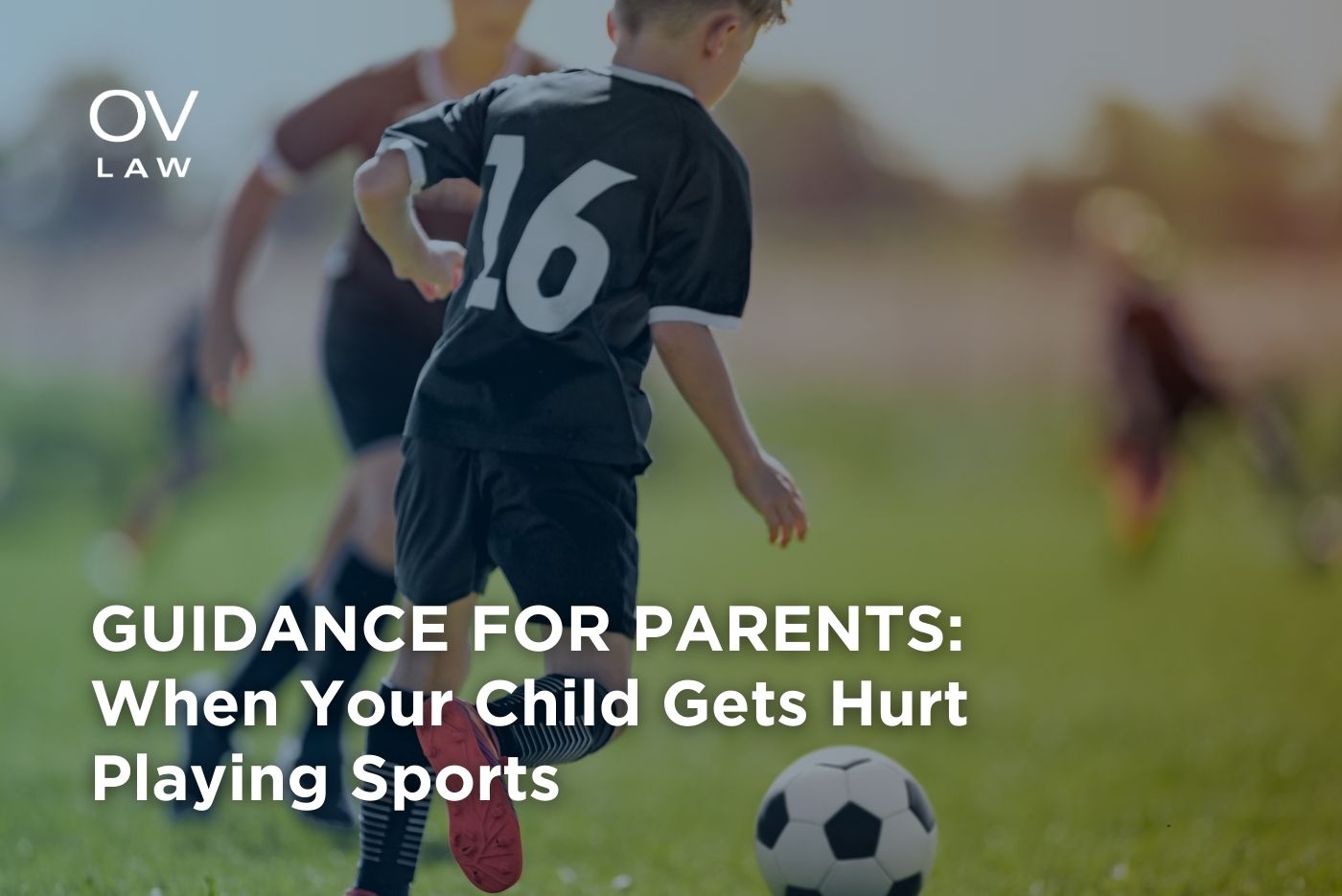Guidance for Parents: When Your Child Gets Hurt Playing Sports

Parents want their children to be happy and healthy, which is why they often enroll them in sports activities to promote physical fitness and well-being. While these activities are usually a positive experience for most families, they do not come without risk. Parents may find themselves in a situation where their child is hurt. Serious injuries can happen in an instant, leaving families with long-lasting financial, emotional, and physical consequences. In that case, families may find themselves in need of financial compensation.
While sports-related injuries are common in Ontario, the ability to sue for compensation is not straightforward. The ability to file a lawsuit for a sports-related injury hinges on several factors, such as the nature of the sport, the conduct of the parties and the foreseeability of harm.
Sports injury-related claims are treated differently than other injury-related claims in Ontario. The law recognizes that there are risks “inherent” to sports activities. For that reason, a person is seen as “voluntarily assuming” or consenting to the risks inherent to the sport. This legal concept is known as “voluntary assumption of risk.” This concept applies equally to children if their parents voluntarily assumed risk to their child by registering them for the sport (and likely signing a waiver).
This means that not every injury sustained during a sporting activity will result in a successful claim. In order to bring a successful lawsuit, the injury has to be as a result of negligence, recklessness or intentional conduct that went beyond conduct that would normally be expected. This could include intentional acts, such as physical attacks, or negligent acts, such as throwing sports equipment in frustration. In other words, conduct becomes unacceptable when it is malicious, out of the ordinary or beyond the bounds of fair play.
Waivers also play a significant role in sports injury cases. Many organizations require participants to sign waivers before engaging in activities, which can limit liability. However, for a waiver to be effective, it must be specific about the risks covered. There are also arguments that waivers do not apply to children, but these are very fact specific.
If you or your child has suffered a serious sports-related injury in Ontario, it’s advisable to consult with a personal injury lawyer. They can help assess the specifics of your case and determine if you have grounds for a lawsuit.
Remember, while sports and recreational activities are important for maintaining a healthy lifestyle, safety should always be a priority. Participants, coaches, and facility operators all have a responsibility to take reasonable precautions to prevent serious injuries.
Written By

Liane is committed to representing individuals who have suffered serious personal injuries and to families who have suffered the losses of loved ones. Liane holds a Juris Doctor from the University of Windsor, where she received the Torkin Manes Cohen and Arbus award for combined academic achievement and service to the community, and the Charles J. Clark scholarship for academic excellence and involvement in community and volunteer activities. She was called to the bar in 2013.
